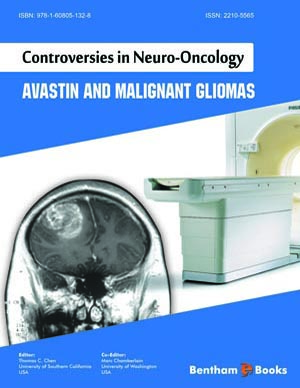Abstract
Given the marked upregulation of angiogenesis in glioblastoma, the integration of anti-angiogenic agents into treatment approaches is a highly attractive consideration. Preclinical data support an anti-tumor benefit with anti-angiogenic agents in GBM models. However, translation of these agents into the clinic was initially tempered by concern that anti-angiogenics may be associated with severe complications in brain tumor patients including hemorrhages and strokes. Extensive clinical experience to date provides reassurance that such complications are rare and that anti-angiogenics can be safely administered to brain tumor patients. Furthermore, clinical trials conducted among recurrent GBM patients using either bevacizumab, a humanized monoclonal antibody against the primary mediator of tumor angiogenesis, vascular endothelial growth factor (VEGF), or VEGF-receptor tyrosine kinase inhibitors such as cediranib, demonstrate encouraging evidence of anti-tumor benefit. In particular, durable radiographic responses observed among recurrent GBM patients were sufficiently frequent to lead to accelerated approval by the U.S. Food and Drug Administration for bevacizumab in May, 2009. Ongoing efforts are evaluating additional strategies to augment the anti-tumor benefit of anti-angiogenic agents for recurrent patients as well as the safety and efficacy of these agents among newly diagnosed GBM patients.






















